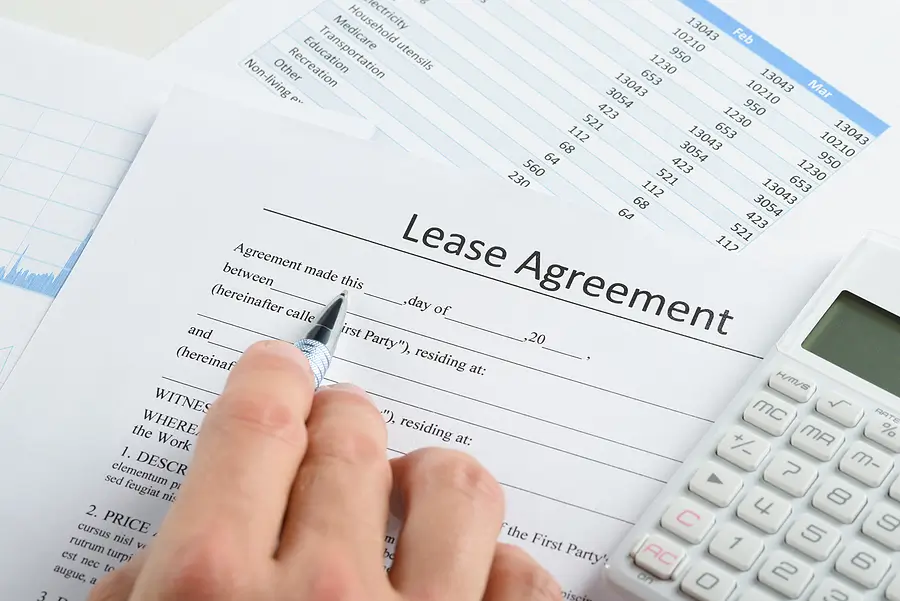When renting out your property in Kansas City, having a detailed lease agreement is essential to protect your interests, clear tenant responsibilities, and ensure smooth management of your rental property. A complete rental agreement serves as a good start for a positive landlord-tenant relationship while protecting your residential property from potential issues. Let’s explore the important factors to include in your lease agreement to secure your investment.
1. Clear Identification of Parties and Property
Start your lease agreement with a detailed section that identifies both the landlord and tenant. Include the full legal names of all tenants who will occupy the rental property. Specify the address of the property being rented, as well as any additional features included, such as parking spaces or storage units. This clarity ensures there’s no confusion about who is responsible for fulfilling the rental lease.
2. Lease Term
Define the duration of the lease term clearly. Specify whether it’s a fixed-term lease (e.g., 12 months) or a month-to-month rental agreement. Include the start and end dates for fixed-term leases, and clarify the process for renewal or termination. Emphasizing the lease termination date helps both parties understand their obligations and sets expectations for the tenancy period.
3. Rent Payment Terms
To avoid misunderstandings, specify the monthly rent amount, due date, and acceptable payment methods. Outline any penalties for late payments, such as fees or interest. Clarify whether rent is due monthly or on another schedule and provide details about how tenants can submit their payments, whether via check, online portal, or another method. A clear rent payment policy helps ensure tenants are consistent in paying rent.
4. Security Deposit
Kansas City landlords should clearly define the terms for the tenant’s security deposit in the lease agreement. Specify the amount required, how it should be paid, and where it will be held. Include conditions under which deductions can be made, such as for unpaid rent, property damage, or cleaning costs. Stating how and when the remaining balance of the tenant’s security deposit will be returned after the lease ends can prevent disputes later.
5. Maintenance and Repair Responsibilities
To protect your property, highlight who is responsible for routine maintenance and repairs. Specify tenant duties, such as keeping the property clean, disposing of trash properly, and reporting any damage or issues promptly. Clarify the landlord’s responsibilities for significant repairs, such as HVAC or structural issues. Addressing these points ensures tenants understand their obligations, reducing potential misunderstandings and tenant defaults.
6. Rules for Alterations and Personal Property
Include a section that addresses alterations to the property, such as painting walls or installing fixtures. State whether written permission is required before making changes. Furthermore, outline policies for storing personal property in shared areas, ensuring tenants maintain the property’s condition.
7. Occupancy Limits
Clearly state the number of occupants allowed to live in the rental unit. Specify that any additional tenants or long-term guests must be approved by either the landlord or property manager. This helps prevent overcrowding and ensures the property complies with local housing regulations.
8. Pet Policies
If you allow pets, include detailed pet policies in the lease agreement. Specify the type, size, and number of pets permitted, and outline any additional fees or deposits required. If pets are not allowed, state this clearly to avoid confusion.
9. Lease Violations and Early Termination
Explain the consequences of lease violations, such as late payments, unauthorized occupants, or property misuse. Include provisions for early termination of the lease, whether initiated by the tenant or landlord. Emphasize any required reasonable notice periods, fees, or penalties associated with breaking the lease. This clarity protects both parties from unexpected issues.
10. Emergency Contact Information
Provide contact information for both the landlord and the property management company for emergencies or urgent repairs. Clear communication channels are essential for addressing issues promptly, protecting your property, and maintaining tenant satisfaction.
11. Insurance Requirements
Require tenants to carry renters’ insurance and include this clause in the lease agreement. Renters’ insurance protects tenants’ belongings and reduces liability risks for landlords. Clarify that your property insurance does not cover the tenant’s personal property.
12. Legal Disclosures and Compliance
Ensure your lease agreement complies with Kansas City and Missouri state laws. Include any legally required disclosures, such as information about lead-based paint in properties built before 1978. Being transparent about these details helps you avoid legal issues.
13. Move-Out Procedures
To protect your property and simplify the transition between tenants, include a detailed move-out checklist. Outline expectations for cleaning, returning keys, and addressing any damages. Specify how and when the security deposit will be returned, detailing any deductions for repairs or unpaid rent.
14. Conflict Resolution and Attorney Fees
Address how disputes will be handled, whether through mediation, arbitration, or small claims court. Including a conflict resolution clause ensures both parties have a clear path for resolving issues without escalating the situation unnecessarily. You should also specify how attorney fees will be handled in the event of legal proceedings.
Secure Your Rental Property With OZ Accommodations
Creating a complete and legally binding lease agreement is critical to protecting your Kansas City rental property. A detailed lease not only clarifies the responsibilities of both landlords and tenants but also helps avoid conflicts and potential losses. By including essential elements like rent terms, maintenance policies, and clear rules for lease termination, you can minimize risks and maintain a smooth rental process.
At Oz Accommodations, we specialize in property management solutions that simplify renting and protect your investments. Our expertise ensures your lease agreements are aligned to meet legal requirements and address the unique needs of your residential property. Whether you’re an experienced landlord or just getting started, we’re here to help you succeed.
Ready to protect your Kansas City rental property? Contact us today to learn more about our services or to get started with professional lease drafting and property management support.


